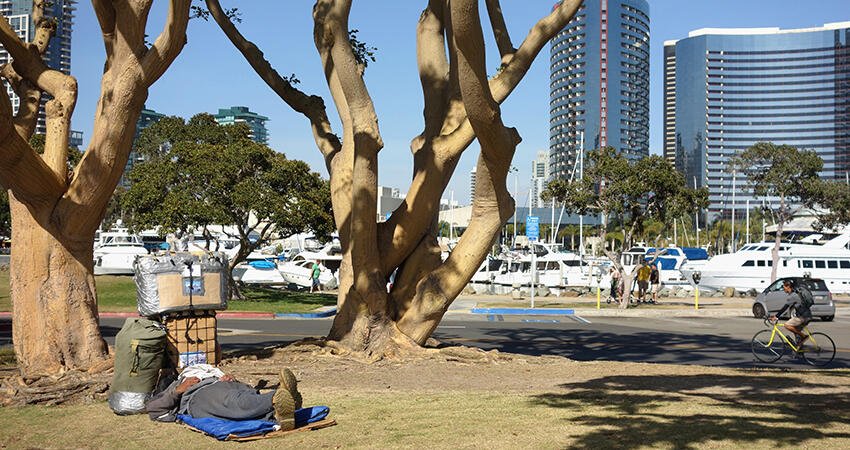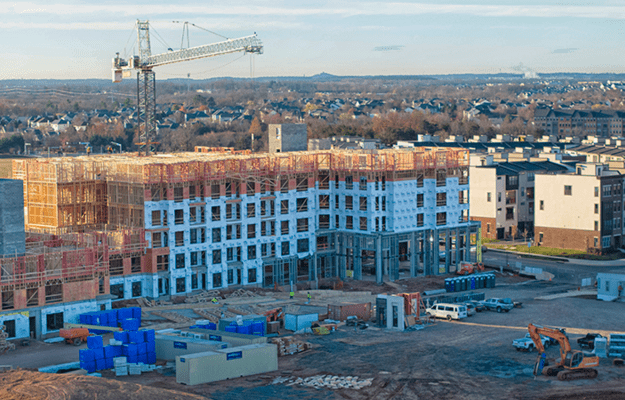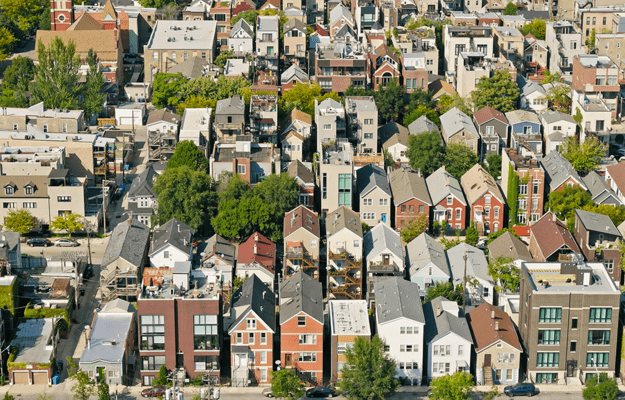
How Do Unhoused People in Downtown San Diego Perceive Police Treatment?
- Title:
-
“You’re an Embarrassment”: Un-housed people’s understandings of policing in downtown San Diego
- Author:
-
Megan Welsh and Mounah Abdel-Samad
- Source:
- Publication Date:
-
2018
Cities have deployed punitive policies and policing practices to manage their increasing homelessness crises based on societal perceptions of homelessness as “dangerous” and “undesirable.” Research suggests West Coast cities in particular, which have some of the largest populations of people experiencing homelessness in the United States and which are often perceived as liberal and welcoming, have “enacted some of the most punitive anti-homeless policies in the nation” amid recent housing and homelessness crises. The San Diego Police Department is tasked with determining who has the right to occupy public spaces through both law enforcement and the social and crisis response services delivered by its Homeless Outreach Team. This study focuses on how the City of San Diego addresses homelessness through policing by examining how unhoused people in downtown San Diego experience policing and how they interpret the broader societal meanings behind criminal justice responses to their circumstances.
The study analyzed qualitative data gathered over two years via 195 brief, structured interviews, three 23-participant focus groups, and 20 in-depth, semistructured interviews with people experiencing homelessness in San Diego’s East Village neighborhood, an epicenter of the city’s homeless crisis. The themes discussed across these conversations focus on experiences and perceptions of “services and institutions, including local shelters, public assistance and welfare, parole/probation, police and the Homeless Outreach Team,” as well as factors that led to homelessness. The authors recorded and coded both nonverbal and verbal responses.
Key findings
- Respondents perceived the police as viewing and treating them negatively. More than half indicated they distrust police, and 40 percent said police do not care about their safety. These findings suggest many unhoused people are reluctant to contact the police when in crisis, particularly if they have been victims of crime.
- Street-sweeping often leads to the destruction of people’s already limited belongings and can undermine a person’s ability to obtain or maintain a job because they lack proper clothes and other personal items, thus perpetuating the cycle of homelessness.
- Although 90 percent of respondents are familiar with the Homeless Outreach Team, only 20 percent said they received assistance recently. They viewed the team as a “publicity stunt” by the city because of its connection to police, the lack of substantive help, and selective assistance to only pregnant women or people older than 65.
- The Homeless Outreach Team does not clearly define its process, from outreach to permanent housing, which reduced willingness among people experiencing homelessness to accept help.
- Respondents view policing tactics as the city’s reminder that they are undesirable and society’s failure to “effectively assist many of its own vulnerable citizens.”
Policy implications
- The authors conclude that the criminalization of homelessness exacerbates the marginalization of this population.
- They argue that to properly respond to issues of homelessness, cities should provide more homelessness services that are decoupled from policing and eliminate aggressive policing tactics, which are costly and dehumanizing to people experiencing homelessness.
Photo by Simone Hogan/Shutterstock


